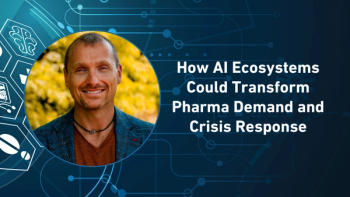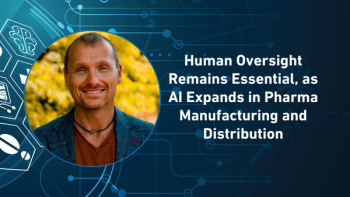
- Pharmaceutical Commerce - December 2024
- Volume 19
- Issue 6
An Appreciation for RFID
The value of this sometimes-unheralded technology to the pharma industry—as well as potential use cases—are starting to come to light.
As I pondered what the angle of this month’s editor's column could possibly be, a thought suddenly crossed my mind: Does RFID technology truly garner the attention it deserves?
Short for radio frequency identification, this type of tech has been on the pharmaceutical scene since the early 2000s, with Pfizer reportedly being one of the early adopters, using tags to track Viagra (sildenafil). For those who may be unfamiliar, the tools in this area have the capability to remotely track and trace products using radio waves. Supporters of RFID note that readers can scan more tags simultaneously from a greater distance, without the need to approach the reader, unlike traditional barcode scanning.
RFID's history, value to the pharma industry, and potential use cases are starting to come to light—as noted by the esteemed panel of subject matter experts that participated in Pharma Commerce’s recent peer exchange on this exact topic (the discussion will be rolled out online in stages; view the first installment
However, companies around the industry are beginning to experiment with its capabilities. For example, BD (Becton, Dickinson and Company), a medical technology company, and ten23 health, a Swiss CDMO, are partnering to utilize this technology as a new way to track prefillable syringes, with the goal of augmenting and adding efficiencies to the manufacturing process. And Intelliguard, a provider of medication management and data-intelligence support, is collaborating with the wholesaler Cencora to boost compatibility between RFID-tagged drugs and RFID-based medication management systems. (I spoke to Rob Sobie, chief product officer of Intelliguard, about these topics on a recent PC Podcast
Overall, it seems pursuits and advances around this technology are on the rise, slowly but surely. We’ll have to see how events transpire heading into the New Year. I wish you all a fantastic 2025.
Nicholas Saraceno is Pharmaceutical Commerce's Editor. He can be reached at [email protected].
Articles in this issue
about 1 year ago
Pharmaceutical Commerce - December 2024 Issue (PDF)about 1 year ago
Traceability's Latest Curveabout 1 year ago
Did Industry Fumble the DSCSA Deadline?about 1 year ago
Caught Beneath the Surface: The Hidden Potential of Patient Dataabout 1 year ago
Navigating the Landscape of Global AI Governanceabout 1 year ago
Why AI Advances in CGT Require Getting Data Rightabout 1 year ago
Policy and Population Healthabout 1 year ago
The Advantages of New Medicare Rx Payment PlanNewsletter
Stay ahead in the life sciences industry with Pharmaceutical Commerce, the latest news, trends, and strategies in drug distribution, commercialization, and market access.




